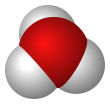This is the current revision of this page, as edited by Bernanke's Crossbow (talk | contribs) at 18:54, 11 January 2024 (→top: add K-O). The present address (URL) is a permanent link to this version.
Revision as of 18:54, 11 January 2024 by Bernanke's Crossbow (talk | contribs) (→top: add K-O)(diff) ← Previous revision | Latest revision (diff) | Newer revision → (diff) | |||
| |||
| Names | |||
|---|---|---|---|
| IUPAC name Hexafluorophosphoric acid | |||
| Other names
Hydrogen hexafluorophosphate Hydron hexafluorophosphate | |||
| Identifiers | |||
| CAS Number | |||
| 3D model (JSmol) | |||
| ChemSpider | |||
| ECHA InfoCard | 100.037.263 | ||
| EC Number |
| ||
| PubChem CID | |||
| CompTox Dashboard (EPA) | |||
InChI
| |||
SMILES
| |||
| Properties | |||
| Chemical formula | HPF6 | ||
| Molar mass | 145.972 g/mol | ||
| Appearance | colorless oily liquid | ||
| Melting point | decomposes at 25 °C | ||
| Solubility in water | exists only in solution | ||
| Hazards | |||
| Occupational safety and health (OHS/OSH): | |||
| Main hazards | Corrosive | ||
| GHS labelling: | |||
| Pictograms |  
| ||
| Signal word | Danger | ||
| Hazard statements | H301, H311, H314, H330 | ||
| Precautionary statements | P260, P264, P271, P280, P284, P301+P330+P331, P303+P361+P353, P304+P340, P305+P351+P338, P310, P320, P321, P363, P403+P233, P405, P501 | ||
| Except where otherwise noted, data are given for materials in their standard state (at 25 °C , 100 kPa).
| |||
Hexafluorophosphoric acid refers to a family of salts produced by combining phosphorus pentafluoride and hydrofluoric acid. The idealized chemical formula for hexafluorophosphoric acid
is HPF6, which also is written H[PF]6. Hexafluorophosphoric acid is only stable in solution, decomposing to HF and PF5 when dry. It exothermically reacts with water to produce oxonium hexafluorophosphate (H3OPF6) and hydrofluoric acid. Additionally, such solutions often contain products derived from hydrolysis of the P-F bonds, including HPO
2F
2, H
2PO
2F, and H
3PO
4, and their conjugate bases. Hexafluorophosphoric acid attacks glass. Upon heating, it decomposes to generate HF. Crystalline HPF
6 has been obtained as the hexahydrate, wherein PF
6 is enclosed in truncated octahedral cages defined by the water and protons. NMR spectroscopy indicates that solutions derived from this hexahydrate contain significant amounts of HF.
Whereas a species with the formula HPF6 remains unknown, the analogous molecular hexafluoroarsenic acid (HAsF6) has been crystallized.
See also
References
- Lide, David R. (1998). Handbook of Chemistry and Physics (87 ed.). Boca Raton, FL: CRC Press. pp. 4–74. ISBN 0-8493-0594-2.
- IUPAC. "Nomenclature of Inorganic Chemistry". Retrieved 2021-04-08.
- Arpad Molnar; G. K. Surya Prakash; Jean Sommer (2009). Superacid Chemistry (2nd ed.). Wiley-Interscience. p. 44. ISBN 978-0-471-59668-4.
- Lindahl, Charles B.; Mahmood, Tariq (2000), "Fluorine compounds, inorganic, phosphorus", Kirk-Othmer Encyclopedia of Chemical Technology, New York: John Wiley, doi:10.1002/0471238961.1608151912091404.a01, ISBN 9780471238966
- ^ D. W. Davidson; S. K. Garg (May 1972). "The Hydrate of Hexafluorophosphoric Acid". Canadian Journal of Chemistry. 50 (21): 3515–3520. doi:10.1139/v72-565.
- Axhausen, Joachim; Lux, Karin; Kornath, Andreas (2014). "The Existence of Hexafluoroarsenic(V) Acid". Angewandte Chemie International Edition. 53 (14): 3720–3721. doi:10.1002/anie.201308023. PMID 24446235.
| Hexafluorophosphates | |
|---|---|

